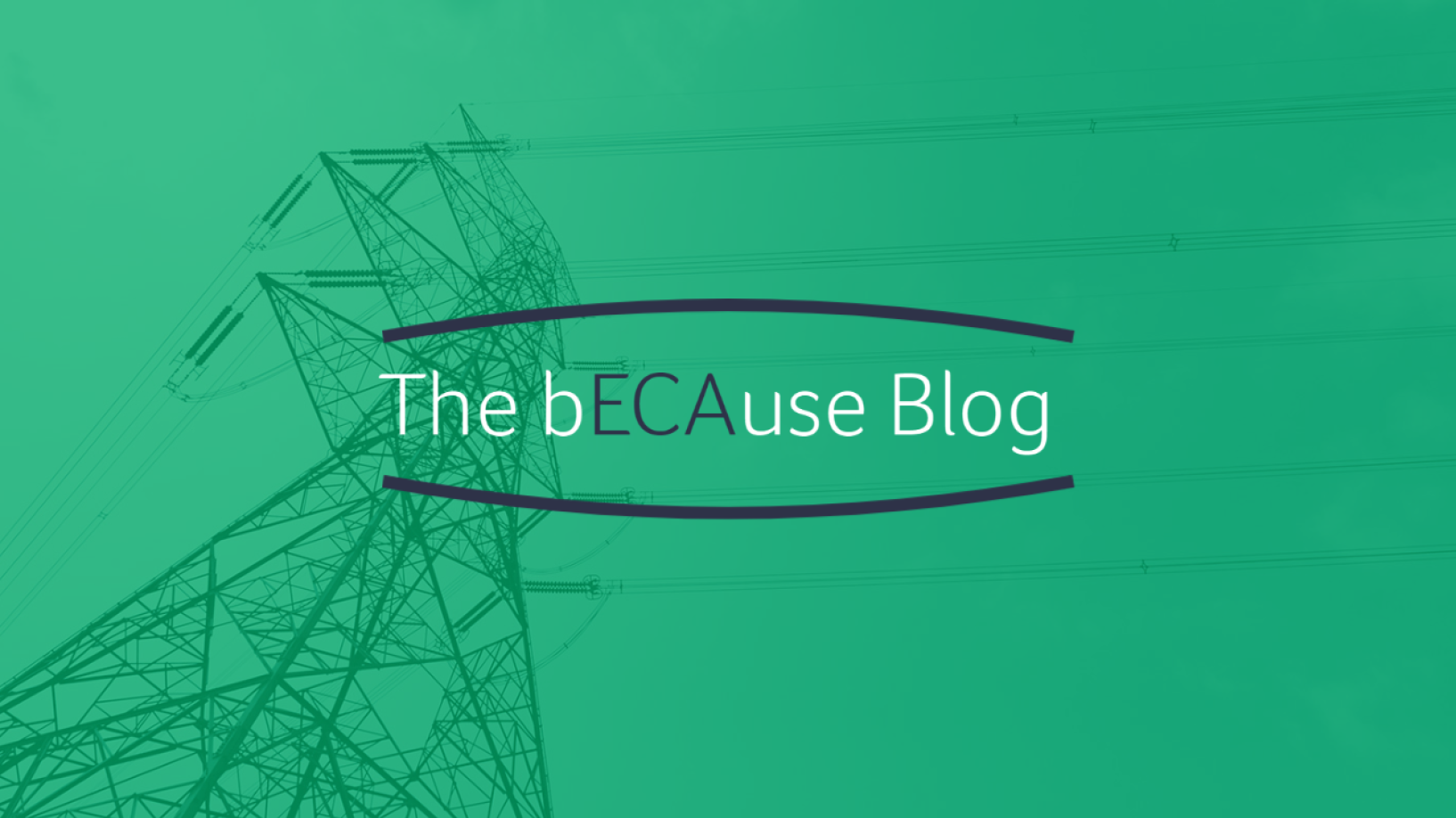The term “reliability” often takes centre stage when talking about the state of the current and future energy system but results from our Energy Consumer Sentiment Survey suggest the way we speak about it might be in need of a rethink.
For much of recent history, concerns about reliability have tended to be situated in the now or the near future. Decision makers, whether it be elected leaders, policy makers or the bodies that make rules for and operate our energy system, have needed to take into account what often felt like a pressing need to ensure energy consumers felt a reliable level of service was being delivered.
But take a look at our recently-released ECSS - the nation's most comprehensive ongoing study of changing consumer attitudes towards all things energy - and you’ll see something quite different happening.
Consumers report they are broadly satisfied with current reliability, considering other factors such as affordability to be of higher significance when they think about their energy concerns. But they also express concern about potential power outages in the longer-term future.
Reliability certainly matters, but maybe not in the same way many in the energy system have often thought it did.
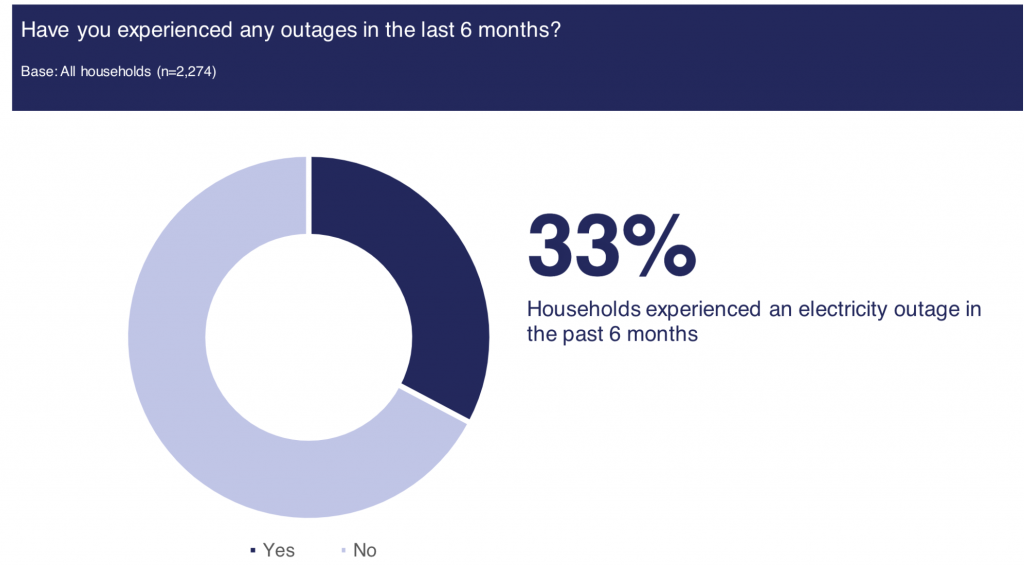
Consumers are satisfied with current reliability
In the most recent ECSS, a third of respondents reported experiencing at least one blackout in the past 6 months however of this third, only 17% were dissatisfied with the number of times this had occurred.
Further, only 11% were not satisfied with the time it took to restore power. Even those respondents who had experienced outages were generally satisfied with the level of reliability being delivered by the energy system.
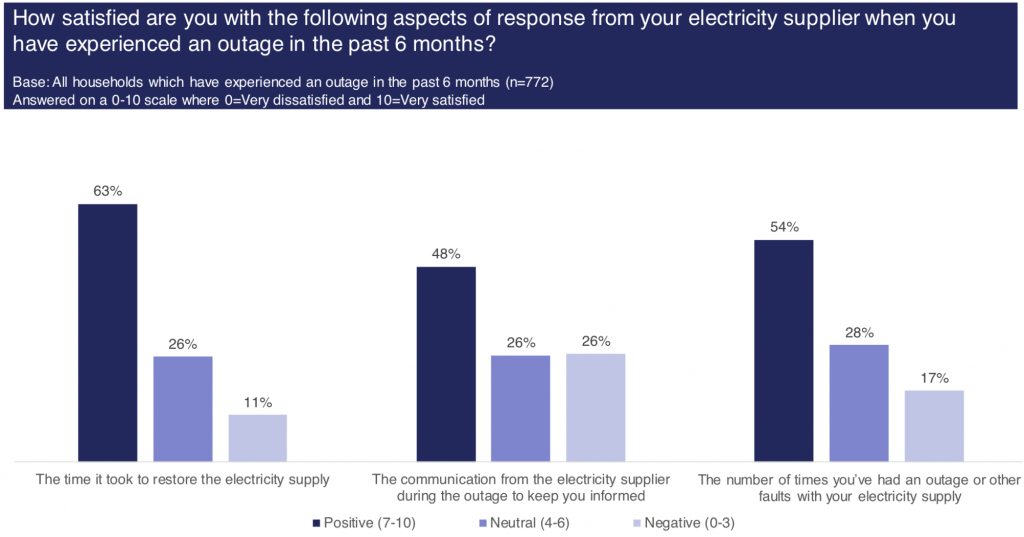
Affordability and renewables more important than reliability
Satisfaction with reliability is perhaps one reason few respondents listed it as a top priority. Participants in the ECSS were asked to nominate what they considered most important from a list of energy system “challenges”. Affordability was ranked highest (39%), ahead of the transition to renewable sources (23%) and investment in new technologies (15%). Only 9% regarded “avoiding power outages” as the system’s most important challenge.
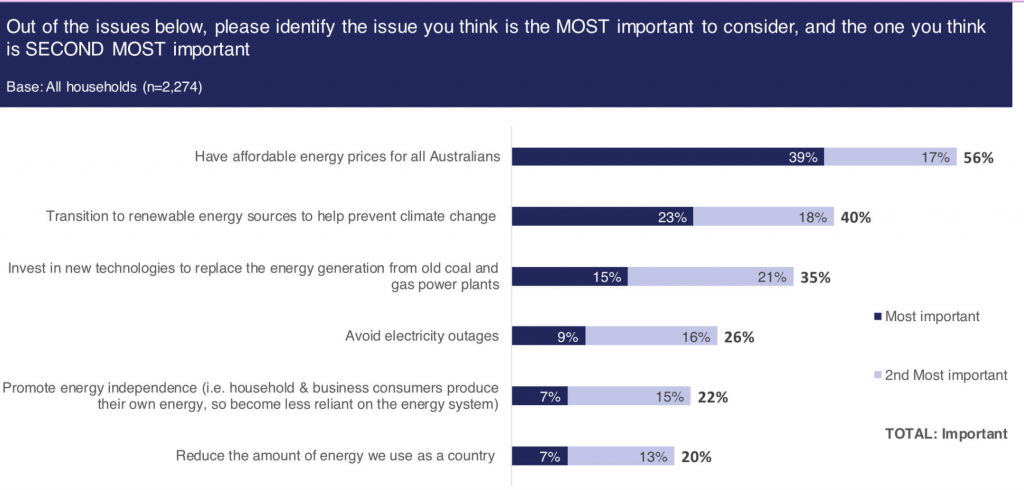
These results point to the need to consider a range of factors when planning for the future. While we hear frequent discussion about how to deliver reliability, energy consumers are clearly saying this should not be achieved at the expense of affordability, or by taking steps that threaten or delay transitioning to renewable energy or investing in new technology to replace fossil-fuel based power generation.
Consumers are worried about the future of reliability
Our energy system is transitioning and consumers are clearly concerned about a number of ways this may impact on them. ECSS respondents raised concerns about energy becoming unaffordable in the next 10-20 years and their long-term concerns also carry through to reliability.
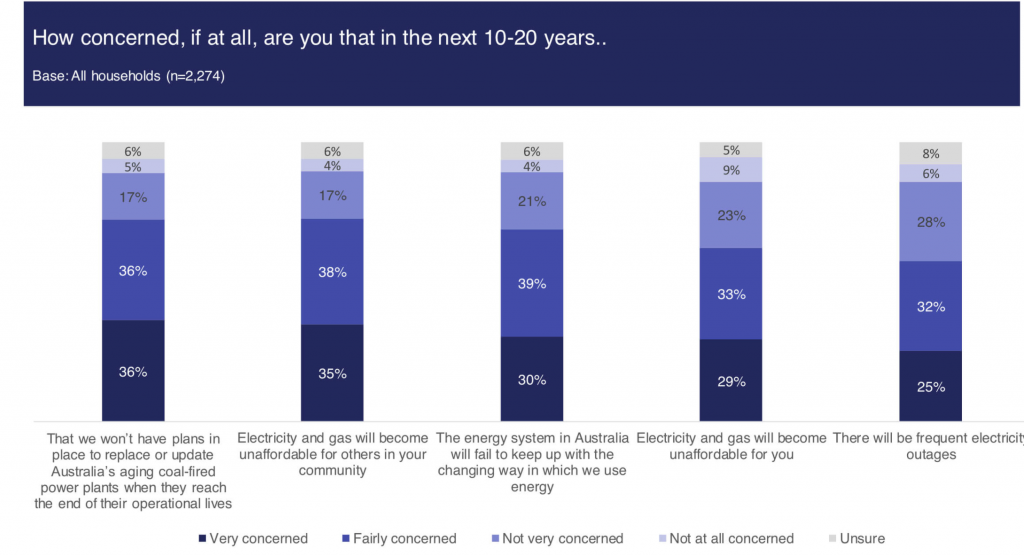
While consumers are currently satisfied with the number of outages, more than half were very or fairly concerned with the potential for outages in the future. We also saw household confidence in future reliability decrease for the first time since 2017, (from 58% to 53%).
These results speak to one of ECA’s core missions: that consumers and their needs are brought along on every step of the transition to a distributed and decentralised energy system based on renewables. In our response to the Energy Security Board’s Post 2025 Option’s Paper, ECA argued that this transition must be achieved in an orderly way that does not compromise reliability.
In their everyday lives, consumers are hearing that coal-fired generators, which have often been associated with delivering reliability of supply, are set to retire in the near future. What they are not hearing is a clear narrative about how reliability can be guaranteed in coming years, as part of a transition to a Net Zero energy system.
Instead, sometimes conflicting stories of ‘gas-fired recoveries’, ‘technology not taxes’, hydrogen and renewables have been promoted and we see different language and seemingly different priorities across various actors and jurisdictions. It’s not surprising, perhaps, that confusion, uncertainty, and maybe even anxiety can result for many consumers.
Our survey results have revealed a number of priorities that policy-makers should keep in mind when thinking about the future of Australia’s energy system. While the transition to renewables is seen as significant and necessary for many of our respondents, their fears about future reliability suggest more must be done to assure them of an orderly transition. At the same time, with so many consumers regarding affordability as a top priority, a reliable energy system must be achieved without shock changes to energy prices.
Finding the right balance is a challenge facing everyone within the energy industry. However, bringing consumers and their needs along at every layer is one crucial step towards achieving a fair and just energy system.
